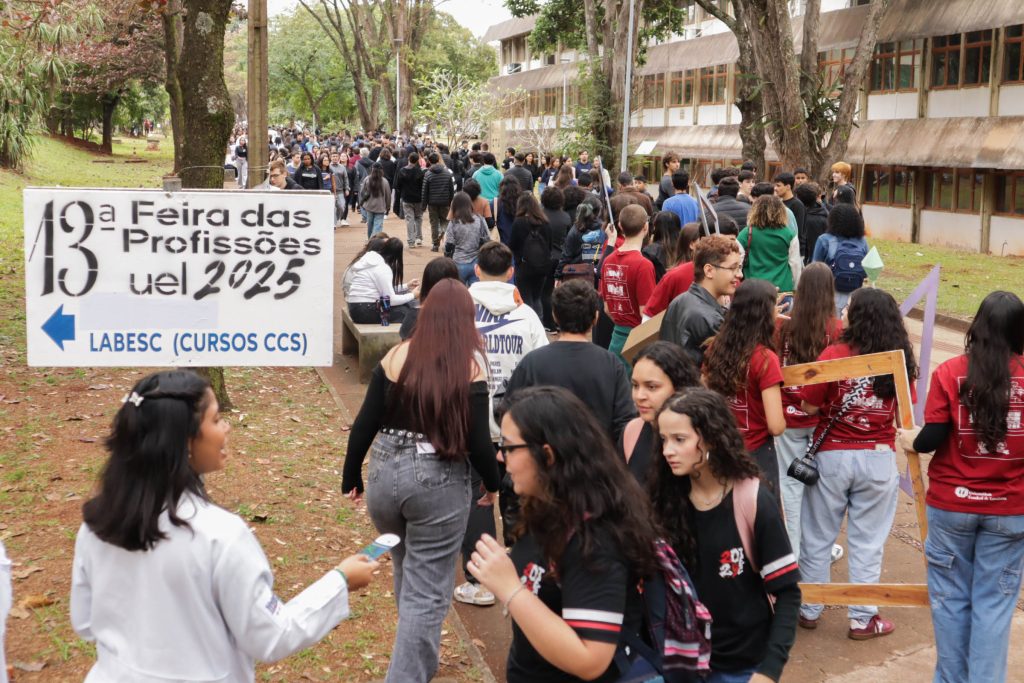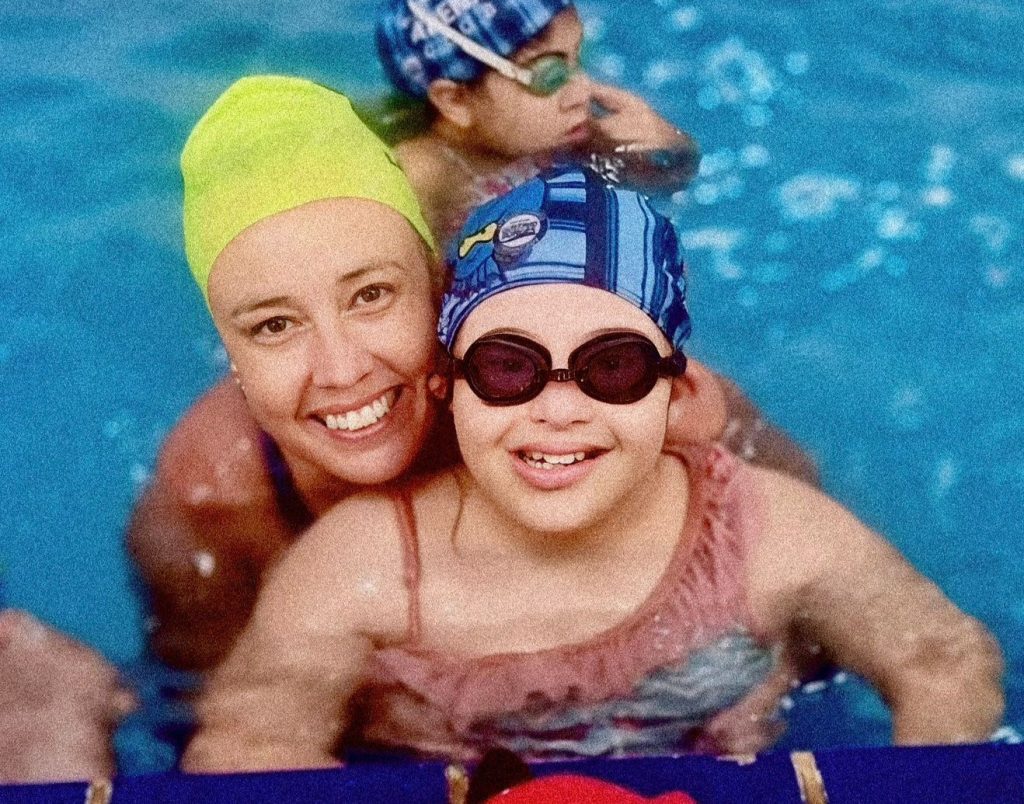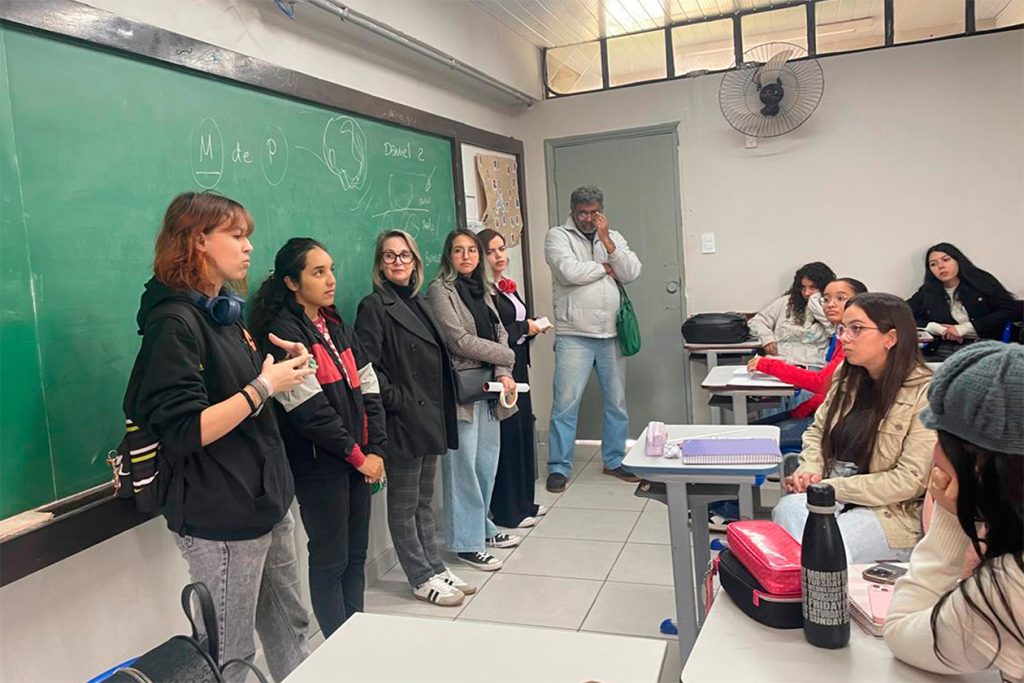[EN] This baby is unstoppable!
[EN] This baby is unstoppable!
Texto traduzido pela equipe do Paraná Fala Inglês (PFI) e originalmente publicado em português no Jornal Notícia, edição nº1418.In the first year of life, babies are expected to master manipulative skills, including reaching and throwing objects, and holding them with force that is often greater than necessary, and releasing them at will. Seeking to observe the development of these manual skills and to understand handgrip progression during this phase, two professors from the Center of Physical Education and Sports at UEL (Cefe) have conducted studies using videos recorded by families during the second semester of their little ones’ lives.
Preliminary results suggest that some infants may exhibit a degree of instability in the pattern of their manipulative skills as they strive to achieve an upright posture and remain balanced on their feet.
Initiated in May 2021, during a period of heightened concern regarding the spread of COVID-19, the research project “Development of Manipulative Skills Coordination in Infants Aged 6 to 12 Months” also aimed to investigate whether the increased time spent at home due to social isolation was affecting the development of these skills.
The project was led by Professor Josiane Medina Papst, in collaboration with Professor Laísla Camila da Silva, who initiated her studies on infants’ manipulative skills during her master’s program at UEL. Six families agreed to take on the challenge of weekly recording leisure and playtime moments with their infants for six months. In this way, parents and caregivers produced videos lasting between 15 to 20 minutes, which were subsequently sent for research analysis.
The participants were divided into two groups. The first group received a toy kit containing cubes, balls, and rattles. The second group was instructed to use their own toys at home, as long as they didn’t pose any risks and were readily accessible to the children. The objective was to ascertain whether there was any skill development over time.
It was expected that the babies would increasingly engage in bimanual reach using both hands, apply force regardless of the size of the object, and gradually refine these behaviors in response to object properties , such as size, shape, texture, and weight. Professor Laísla explains, “By the end of the first year, we anticipated that they would use the pincer movement or the opposition of the thumb with more fingers for smaller objects, using their digits without applying excessive force”.
Instability
According to the professors, the preliminary results from the studies suggest that while most children adeptly develop the analyzed skills, some may experience a certain degree of confusion in executing manipulative skills they had previously acquired. Laísla Silva highlights that this difficulty was more commonly observed in babies during the development of an upright posture and their search for balance while standing.
Professor Josiane Papst points out that there are already some research hypotheses explaining why some babies might face difficulties in performing manipulative skills during this phase. Moreover, she emphasizes that this characteristic alone should not be interpreted as something negative.
“When the child gains independence in terms of mobility, it also begins to influence their manipulative skills. We don’t see this as a negative aspect, as it’s not a regression but an adaptation, which is positive. At some point, the child gives up some comfortable things and,for example, stops grabbing an object in a comfortable way, because they are adapting to what they can do while moving at the same time,” she explains.
This search for a more comfortable pattern also explains why some babies, in the process of adapting to standing, may return to the ground while manipulating toys or objects that pique their curiosity, according to the professors. “It’s an idea of adapting their behavior until they feel stable again and master that skill well. Then, we consider that they are at a more advanced level. It continues until they face a new challenge. We call this behavioral instability,” explains Papst.
Postural control
“Considering the premise of development, it is during this first year of life that we build a motor repertoire to use these motor skills throughout life”, emphasizes Professor Laísla, currently a Ph.D. student at the School of Physical Education and Sports at the University of São Paulo (USP). Her interest in studying the development of manipulative skills stems from the importance of this motor ability in the personal and professional lives of human beings. “Today, we are capable of executing highly precise movements, such as the pincer grip, which sets us apart from other mammals, and this development starts in the first year of life. So, it is very important to understand what happens with these manual skills because they have such an impact on our lives,” she says.
Therefore, she plans to continue her studies on manipulative skills in infants, including an analysis of postural control in her PhD project. The goal is to understand which factors influence postural control and whether there are other factors related to the development of manipulative skills. “The focus will be precisely on this transitional period, to better explain what happens there, something that is not yet well-documented in the literature. We have many articles that explain the sequence of development, but not the explanation for this variability, this instability that occurs during this period. My focus will be on investigating this instability,” says the professor, who will continue her Ph.D. research with the support of the Study Group on Development and Motor Learning (Gepedam) at Cefe.
Originally coordinated by Professors Inara Marques, who is currently retired from UEL, and Josiane Papst, the group was created in 2004 to assemble undergraduate and graduate students interested in research areas involving motor assessment and development, learning, and movement control. More information about the research conducted by the study group can be found on their Instagram profile @gepedam.uel.
Tradução: Raquel Prette. Revisão: Ana Paula dos Santos Aires. Supervisão: Fernanda Machado Brener. Programa Paraná Fala Inglês (PFI).
Matéria originalmente publicada em português na edição nº 1418 do Jornal Notícia: Ninguém segura este bebê!




